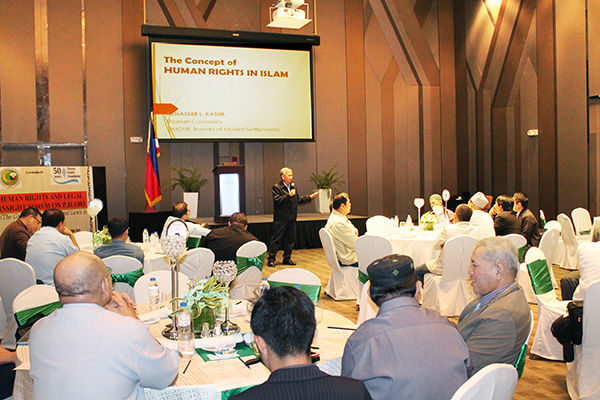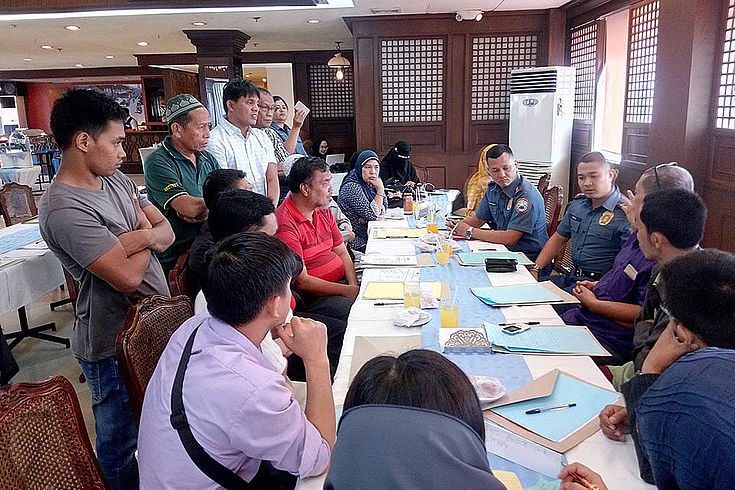"Paralegal" Training for Community Leaders
With the enactment and ratification of the Bangsamoro Organic Law (BOL), hopes are high that it will pave the way towards improved lives and better opportunities for residents of the Bangsamoro Region. Nevertheless, it is important to recognize that over the years much has already been done to bring about improved lives and better communities through the efforts of both (national and regional) government and Muslim civil society organizations, not to mention other sectors. It may be observed that the orientation and consequent capacity for self-governance and participatory governance grows as a counterpoint to the path of insurgency.

Human Rights and Legal Insight Forum in Quezon City
HSF
Fortifying the rule of law in Muslim communities on one hand, and upholding and advancing legal and human rights of every Muslim Filipino on the other, is one of the critical goals that must be pursued with equal fervor and competence. Improved access to justice and legal education and empowerment of marginalized communities in the Bangsamoro Autonomous Region in Muslim Mindanao (BARMM) or in other Muslim communities is crucial to instilling belief in systems of justice and in legal processes that serve to build peace and a culture of democratic governance.
Excluding the much-chronicled secessionist battles and mutually destructive warfare between various Muslim and government armies, one frequently cited cause of lawless disruption of life and livelihood is “rido” or clan feuds. These conflicts have resulted in much loss of life, displacement, destruction of property, and setting back of local economies and in the further impoverishment of the families and communities affected. “Rido” often stem from legal issues or conflict arising from gaps or flaws in the justice system or failures of law enforcement that plague the region and encourage distrust among residents with the latter resorting to extra-legal if not illegal remedies.
The struggle for the human and legal rights of the Muslim Filipino also goes beyond the borders of the Bangsamoro region. A significant number of Muslim Filipinos have chosen to seek safety and better opportunities for their families in towns and cities throughout the country. While often brought about by dire necessity, this migration in and around the Philippines may also be seen as an inevitable social process with positive implications as it moves Philippine society towards embracing its rich multicultural heritage and fosters peaceful integration and hopefully, inclusivity.

Community Dialogue on Common Legal & Justice-related Issue and Concerns of Muslim Filipino Communities in Northern Mindanao
This desired process of integration is, however, being birthed in conflict and discrimination. Illegal arrests, mistaken identities and evidence planting are other common occurrences in migrant Muslim communities. Without any support network nor knowledge of laws affecting their rights, Muslim Filipinos often from marginalized communities with little or no access to government legal, educational or social services have found themselves languishing in jails and detention centers without the protection of due process. Thus, the human rights issue is inextricably linked to issues of access to justice.
The National Commission on Muslim Filipinos (NCMF) is the government agency through which Muslim Filipinos can seek government assistance and redress; and serve as the medium through which such assistance may be extended to Muslim Filipinos. NCMF supports an access to justice and community paralegal program for Muslim Filipinos at the grassroots as a basic strategy to advance respect for human rights and the rule of law especially for marginalized Muslim communities in Mindanao.

